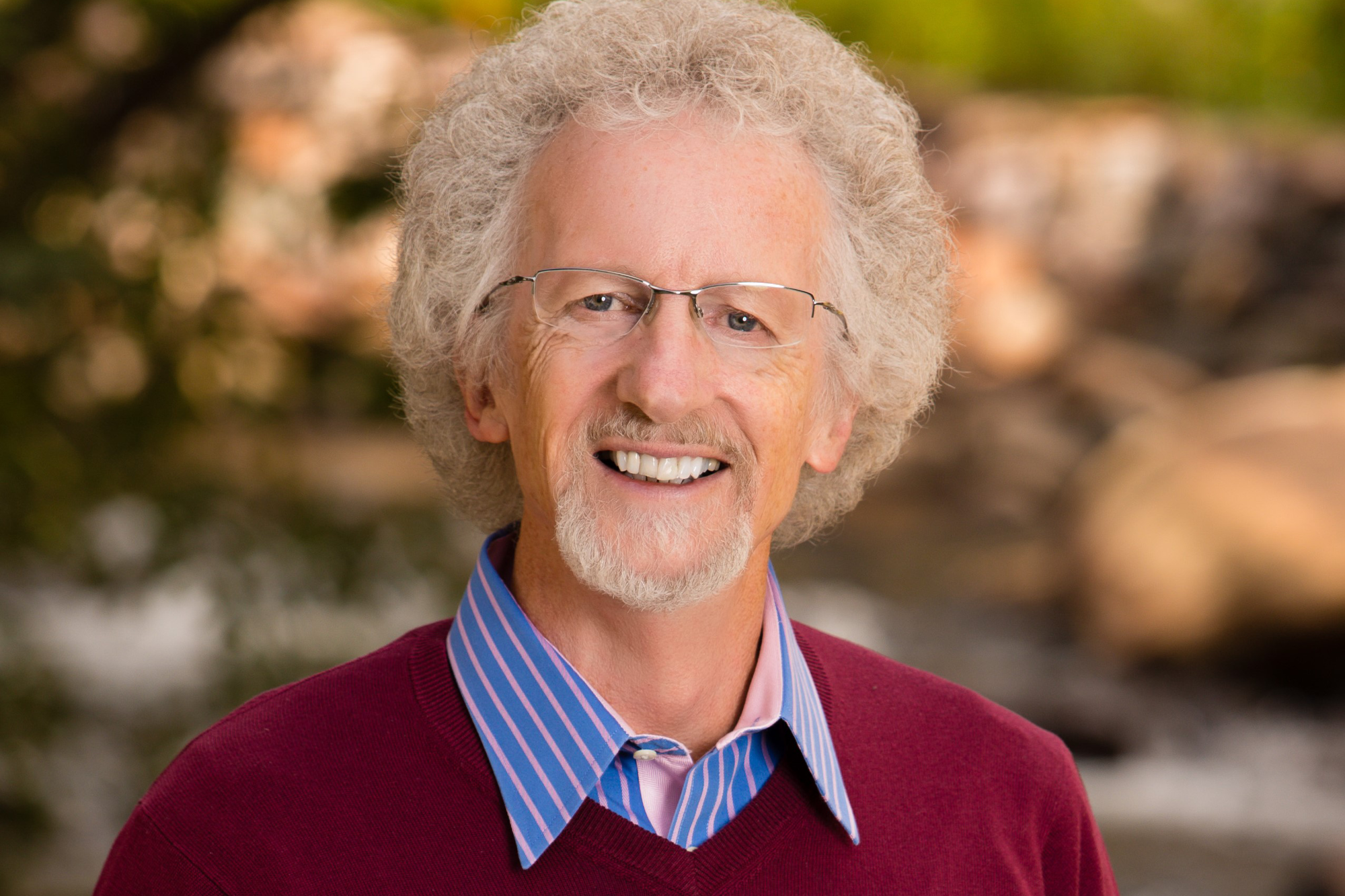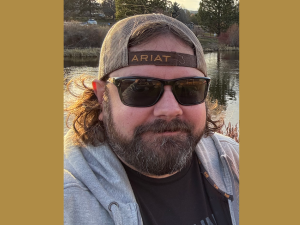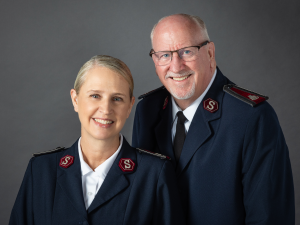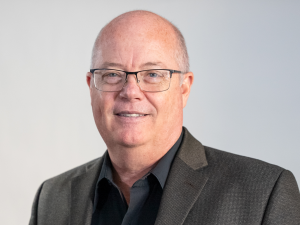What is so amazing about grace?
That’s the question author Philip Yancey started with when he wrote the book by that title, What’s So Amazing About Grace?, published in 1997.
It went on to sell over 2 million copies.
And now, 25 years later, Philip Yancey has released a revised version—updated for the modern day.
As the author of 13 Gold Medallion Award-winning books and two ECPA Book of the Year awards, including for What’s So Amazing About Grace?, Philip will tell you some things never change.
As he writes, “Grace is the church’s great distinctive. It’s the one thing the world cannot duplicate, and the one thing it craves above all else—for only grace can bring hope and transformation to a jaded world.”
What does it look like in action?
Grace does not excuse sin, he says, but it treasures the sinner. True grace is shocking, scandalous. It shakes our conventions with its insistence on getting close to sinners and touching them with mercy and hope.
How can Christians contend graciously with moral issues that threaten all they hold dear?
And how can we become living answers to a world that desperately wants to know, What’s So Amazing About Grace? And could use a whole lot more of it.
Show highlights include:
- More about Philip Yancey.
- What prompted the update and re-release of his book, What’s So Amazing About Grace?
- His original goal in writing it.
- Why he think the book touched such a nerve with people.
- What grace is.
- How the concept of grace has evolved for Philip Yancey personally in the past 25 years.
- How grace offers guidance in navigating today’s complexities.
- How it can serve as a unifier when there’s so much division between perspectives today.
- What Christians are missing today about grace.
- How he envisions the revised edition causing change in communities.
- A practical way for us to embody grace in our own lives and extend it to others.
Join the Caring X Grace Winter Book Club for powerful stories, rich theology and practical suggestions as Philip Yancey challenges us to become living answers to a world that desperately needs to know, What’s So Amazing About Grace?
Listen and subscribe to the Do Gooders Podcast now. Below is a transcript of the episode, edited for readability. For more information on the people and ideas in the episode, see the links at the bottom of this post.
* * *
Christin Thieme: Well, Philip Yancey, welcome to the Do Gooders Podcast. Thank you so much for joining us today.
Philip Yancey: Thank you. I like that ironic name, Do Gooders.
Christin Thieme: Yeah, exactly. That’s right. It’s what we’re aiming for, right?
Philip Yancey: That’s right. Yeah. It’s too bad a word like that gets spoiled. I mean, doing good is a good thing, right? Not a bad thing.
Christin Thieme: I know. Exactly. We’re going to reclaim it.
Philip Yancey: Okay, I like it.
Christin Thieme: Can you tell us, as we get started, for those who might somehow be unfamiliar with your work, a little bit about who are you?
Philip Yancey: I’m a freelance author. So I’ll work for anybody, basically. For the last 40 years, probably, I’ve been mainly writing books and questions that I have, questions about my faith. I grew up in a pretty unhealthy, toxic church background. So, I’ve been blessed to be able to spend my career figuring things out, picking up things, I believe, one by one, dusting them off, trying to find out what’s worth keeping and what I shouldn’t keep.
So, books like The Jesus I Never Knew. I came to believe that the Jesus portrayed in the Bible is very different than the Jesus image I grew up with. So, I had a whole chance to just step back and figure out what is that Jesus? What would he be like if I were a journalist getting to know him, doing a profile on him?
What’s So Amazing about Grace? is another one. That book has been out about 25 years, and I think we’re going to be talking about a new edition of it where I’ve updated things. A lot of my books have questions in the title, Where is God When it Hurts? Does Prayer Make a Difference? And these are my questions, and I’ve just been blessed to be able to spend whatever time it takes to come up with something that, in some way, answers those questions.
Christin Thieme: I like that approach of starting with a question and taking it from there to investigate and figure it out. I mean, what a career. You’re lucky to be in a spot where that’s your job. And in a lot of ways, it’s mine too, which it’s a lot of fun.
Philip Yancey: Right. Yeah. I mean, as journalists, we’re not really experts. It’s not like we know something about one Old Testament book that nobody else knows. We’re generalists and we get to look at the big picture, and then we can spend our time going to people who can really help us figure out some of those things.
Christin Thieme: Yeah, exactly. I like it. So, you mentioned that after 25 years, you’ve re-released What’s So Amazing About Grace? What prompted you to update this book?
Philip Yancey: Well, the world has changed in 25 years. When I wrote the book, I thought already there were signs of division in our country. Flash forward 25 years, and things have gone the wrong direction in a big way. Back in late 1990s when I wrote the book, the world was looking up, communism had fallen, the Berlin Wall had been destroyed, and people were experiencing freedom for the first time. There was peace between the United States and Russia and communism. Just had a hopeful scenario.
And the biggest news those days was when President Clinton had a liaison with this White House intern. I mean, that was the headline. Compare that to recent headlines. That was the biggest news of the day. Things have really changed. And even in those days, not that long ago, there was cooperation in Congress. The Republicans and Democrats would come together when necessary. They didn’t have these all out wrestling matches every time a bill came up.
In the world of faith as well, Christians and non-Christians, there was kind of a general background Christian consensus in the country that is gone now. It wasn’t that long ago Christian, before your birth, I’m sure, where they put “In God We Trust” on the coins of the United States. That was in the 1950s, during Eisenhower’s era. And “under God” in the Pledge of Allegiance. You couldn’t pass something like that these days. The country has divided in significant ways.
And a lot of the illustrations I used in the book have changed. For instance, we had some people read it and they would stumble on the word Yugoslavia—”What is Yugoslavia? We’ve never heard of that.” Because it’s been gone now for 30 years or so. It’s split into seven different countries. And sadly, it was pretty easy to go back and find examples of places where grace is direly needed because things have gotten worse, not better, in those 25 years.
Christin Thieme: That’s really the ethos of it, right? Is why we need grace. I read that you originally submitted the book with the proposed title of “What’s So Amazing About Grace and Why Don’t Christians Show More of It?” Right?
Philip Yancey: Exactly.
Christin Thieme: So, what was your original goal? When you first had the idea for this book, what was your goal with it?
Philip Yancey: I had started asking people, in an airplane seat next to me or in a doctor’s office waiting room, I say, “I’m a writer. I’m writing a book, and I’m writing about Christians, especially evangelical Christians. When I say that word, evangelical Christian, what comes to your mind?” And not one time did they say, “Those are the servant people. Those are the really extraordinarily nice people. Those are the grace-filled people.”
They would say things, “Well, they’re hypocrites. They’re holier than thou. They’re trying to get me to do things I don’t want to do.” They just had this image of Christians as these killjoys who are messing up their lives or looking down on them. And I thought, “Boy, that is so different than what I read in the gospels about the way Jesus conducted himself.” Because when Jesus was somewhere, the people who flocked to him were the lowest people on the social ladder. They were the prostitutes, the tax collectors, the people with leprosy and diseases, the marginalized people, which I think The Salvation Army can identify with.
And a lot of those people today, those kinds of people, when I ask them, “You need help? Have you ever thought about going to church?” They look at me, “Are you kidding? Why would I ever go there? They would just make me feel worse.” So somehow, we’re not conveying that welcoming spirit that Jesus did to people in real need. And I wanted to find out why not, and what would it take to restore that aura of grace around Jesus followers.
Christin Thieme: Yeah. And you’ve said that this book has sold more copies and provoked more responses than anything else in your writing career. Why do you think this topic in particular touched such a nerve with people?
Philip Yancey: I think, down deep, we’re all thirsting for grace. Grace is the one thing that gets us past. Like family feuds, I know about those. I have a small family, they’re just three of us. And two, my mother and brother, hadn’t spoken in over 50 years. I finally got them on the phone together after 50 years, shortly before my mother died.
But watching that, and I’ve read things like one in six people in the United States have stopped all association with a family member or a close friend because of a disagreement over politics. We’re seeing that more and more. Even something like the pandemic, instead of coming together, we divided. Mask, not mask, vaccines, no vaccines. Those kinds of issues. They would split churches, they would split families.
And how do you get past that? Well, the only way I know to get past it is through grace, and it starts with a realization of God’s grace for us, God’s forgiveness of us. And then, we are supposed to take that same spirit and show the rest of the world that these barriers that we erect can be dismantled.
Christin Thieme: Yeah. So we’ve mentioned this a few times, but just to really clarify, what is grace?
Philip Yancey: What is grace? It’s a hard thing to define. I, early on, talked about the different ways that it appears in common language. You play the piano, there are grace notes. You can play the piece without it, but they just add a lot. My most fun encounter with the word grace was I was returning a car out where you live, in Los Angeles. And I was an hour late because of the LA traffic, right?
Christin Thieme: Yes, welcome.
Philip Yancey: And then, I show up at the airport… Yeah. Right. I show up at the airport. I’m already kind of frustrated and upset because I figured they’re going to charge me a whole extra day because I’m one hour late. And instead, the woman behind the counter said, “Okay. That’s it, Mr. Yancey.” I said, “Well, don’t I owe you anything else?” “No.” “Well, I’m late.” She said, “Yeah, but we have a grace period.” And I said, “Well, what is that? What’s grace?” And she thought for a minute, I don’t think they covered that in the Hertz training manual, and she said, “Well, I don’t know. But I guess it means that even though you’re supposed to pay, you don’t have to.”
And I thought, “That’s a pretty good start, isn’t it?” Grace is a free gift of God. It’s just the realization that God already loves us. There’s nothing we could do to try to get God to love us, he already does. It’s just a matter of holding out our hands and receiving the free gift of God’s love and forgiveness. And a lot of people have trouble with that, we have trouble receiving things. We want to earn our way. We want to be independent, pull ourselves up by our own bootstraps.
And that doesn’t work. You can’t try to be more spiritual so that God will like you. Often, when you do that, you miss grace entirely. It’s a matter of holding out our hands and realizing, as people in the recovery movement do, “I can’t make this on my own. I need help. I’m going to start by saying, ‘I have messed up my life and I need help from a higher power.'” They say. Or from God, Christians say. And find a way to receive God’s love and forgiveness and power that it’s already there.
Christin Thieme: Yeah, absolutely. So, you started out with this question and wanted to know more about grace—what was so amazing about it? Twenty-five years later, how, for you personally, has that concept evolved?
Philip Yancey: I was struck as I looked into the world scene, how grace can have global repercussions. You look at a place like South Africa where one group of people, the people of color, Black Africans, had been oppressed. And even though there were a lot more of them at the time, there were like 20 million Black Africans and 5 million white. And the 5 million, however, ran the country. They ran the government, they ran the police force and the army. And suddenly, there was going to be a turnover and they were going to turn everything over to the majority, people who were Black, and everybody predicted a bloodbath.
I mean, if you’ve been oppressed that long, and then finally they turned the government over to you, what are you going to do? Naturally, you get revenge. But it took a few moral leaders, especially Desmond Tutu and Nelson Mandela, who turned the corner on that and who… It was Nelson Mandela who said, “We don’t have time for revenge. We don’t even have time for justice.” And so, he came up with this Truth and Reconciliation Commission where they would just expose the evil that had been done over the years, but have a ramp for forgiveness in starting over, instead of taking out revenge on the other party.
And it became South Africans were glued to their televisions for months as they watch this hearing unfold. And most people I know that I’ve talked to say, “That really prevented a civil war. It could have been a bloodbath like we’re seeing in some other countries.” But grace found a way. And there were Christians at the core of that who were devising it and shepherding it. And we could use some of that in the United States today.
Again, we’re so divided and it’s hard for people even to sit down and have a conversation with each other. And it shouldn’t be that way, especially in democracy, where we, by definition, accept other voices and then we try to work with other voices to come up with some sort of conciliation that works for both parties. And we need it more than ever. Watching those 25 years, and thinking back to where I was and where the country was 25 years ago, I just am shocked at how far we’ve gone in the wrong direction so quickly.
Christin Thieme: What do you think we’re missing about grace today?
Philip Yancey: The main thing we’re missing is that we hang around people who are just like us. We tend to gravitate toward people who think like us, who are same education background, same race. Think of the book clubs you go to or the church you go to. If I visited your church, there’s a good chance they would look a lot like you. And I understand that, we’re tribal people and that makes sense. However, that’s not how you learn grace. You don’t learn grace by being around people who are just like you. You only learn grace by being around people who challenge you.
Maybe challenge you because of their lifestyle. Maybe they are offensive to you, morally offensive, and you think what they’re doing is wrong. Okay? You’re allowed to think that. But you’re not allowed to say, “So therefore, I won’t have anything to do with those people.” That is not the way to grow in grace. The way to grow in grace is to sit down with them, to serve them, to befriend them, to try to understand life from their point of view, their perspective. And I think that’s what we’re missing.
And it’s even made worse by social media because it’s easy to find these little silos that reflect what you already believe and just spend your time there, listening to the same news station all the time. And I like to go back and forth between CNN and Fox News because the same day’s news is happening, but boy, you listen to two different perspectives and you wonder, “Is that the same news I heard an hour ago?” And I think we need more of that. Yeah.
Christin Thieme: So, what is the practical next step for that? I mean, more and more we are online, we’re in these communities. I mean, maybe we go to church in person, maybe we go to an in-person book club, but maybe we’re online for those things. So, how do we rectify that when you’re saying the answer is to be spending more time with people who are different than us and challenge us?
Philip Yancey: Well, I think The Salvation Army shows the way.
Christin Thieme: Yeah. Come join us.
Philip Yancey: You do that by serving. I happened to be in New York City just one week after 9/11. And I contacted The Salvation Army and they escorted me down. And I saw these people just working day and night, serving people they’ve never met, would never see again. But you are an Army of service and in ministry to prisons, in ministry to people who are suffering from addiction, those kinds of things. You don’t say, “Okay. For me to help you, you’ve got to be more like me, so you’ve got to sign this statement saying you agree with me.” No, you’re there to serve people in need, and that was the Jesus style.
Before he left the last night with his disciples, he said, “Let me show you what you’re supposed to be doing once I’m gone.” And he washed their feet, this demeaning task, saying, “You’re not here to rule. You’re here to serve.” And when you do that, grace will cross those boundaries that we build up. I’m better than you, that’s what un-grace is. I’m more educated than you, or I’m more moral than you.
And every time you erect one of those walls, I call that un-grace. And grace tears down those walls so that we realize we’re both human beings with needs. I’ve found some answers in what God has done for me, and because of that, I want to show you the same style that God showed me.
Christin Thieme: Yeah, absolutely. So with this revised edition, what do you hope that a reader takes away from it? And maybe beyond the individual reader, what kind of change would you hope, in a perfect world, would you hope that it would cause in communities?
Philip Yancey: I think we need to start by understanding each other at the core. Some of the most moving letters I’ve received over the years are around the gay issue. Because back in 1998, it was just being talked about. It was an undercover thing, people didn’t talk about it. And I have a whole chapter in my book on my friendship with a man named Mel White, who was a pastor in a covenant church and a professor at Fuller Seminary. And he wrote books, as a ghostwriter, with people like Billy Graham and Pat Robertson and Jerry Falwell.
And then, in one dramatic day, he told me that all this time he had a double life. He was living a lie. He was married and continued to be married, but he had a gay lifestyle on the side. And then, eventually, he did go public and became a gay activist. And my friendship taught me a lot. And I guess what I learned was it’s really not my job to make Mel White’s decisions for him. He’s the only person responsible for that. But it is my job to keep a relationship with him, to learn from him and to be affected by what I learned from him.
I’ve heard from so many parents, for example, of children who declare themselves as gay. And it’s often, not always, but it’s often a very disruptive thing in the family. The parents are from a different generation, they don’t understand this at all, they think it’s wrong. And churches are preaching against it. And then, they’re torn. Do we invite my son, my daughter over for Thanksgiving dinner? Should their partner be invited? What if they get married? Should I attend the wedding? These kinds of issues. That is where grace is put to the test. How do you maintain a relationship with someone that you disapprove of or someone who’s very different than you are in a challenging way?
And I have seen, just in the mail I got, it is possible. It is possible to keep a strong and loving relationship going even if you disagree on an important issue between the two of you. And that’s just one example, it happens to be the gay example. But there are others, politics and all sorts of different things that we really need to learn how to be around people who see the world differently than we do. It’s only going to increase in the United States.
Christin Thieme: What would you say to somebody who, in response, says, “Yes, but wouldn’t that continuation of a relationship, so on and so forth, condone what I disagree with?”
Philip Yancey: Well, I would say, “Jesus didn’t seem to worry about that very much.” He was accused by others of being a friend of sinners. And I would take that as a compliment, actually, because it didn’t bother Jesus at all. He seemed to welcome that. One time, I went through the gospels and counted the number of times Jesus was invited over for dinner, I think eight or nine times. And about half of the people who invited him regretted it later. Those were the Pharisees.
But the people like the tax collectors, Achaeus would be an example. They were delighted to have Jesus because here was the person that treated them with dignity as if they were a human being, as if they mattered. And just that act in itself transformed them. Achaeus went out and sold everything he had and started giving it away to the people he had cheated.
And grace can do that, grace can tear down the barriers far more effectively than standing on the other side of a street with a placard telling the people that they’re going to hell. Grace has its own power. It’s different than the adversarial power that often we see in free countries.
Christin Thieme: I know you’ve said the best way to find more grace is to serve people, to be involved, and with people who are different from you. What is one practical way somebody today could start to embody more grace in their own life and extend it to others? What would be your best piece of advice, is our final question here.
Philip Yancey: I would say deliberately choose people that you know are going to be challenging to you. Maybe start with somebody in your family, some cranky uncle who makes racist comments or something like that. And start by saying, “Okay. I think we probably disagree on this issue of race, but I’m not sure. And I’d like to have a discussion with you just to understand your point of view. This isn’t an argument. I’m not going to…Unless you want. I don’t want to tell you what I believe, I would just really like to understand you. I wonder if you could explain that to me and let me try to reflect it back to see if I understand it correctly.”
It’s amazing how just that start in the conversation, I’m taking argument off the table, nobody’s going to win or lose, but I just really want to understand you. And you’re honoring the person. And it’s just a way to start that initial conversation. I do that almost instinctively as a journalist because I’m trying to get people to talk. And if I go in with abrasive questions, then they clam up or they don’t really give me anything good in return. But if I come in saying, “I really want to understand your perspective so that I can present it to my readers.” If I have that spirit, I’m much more likely to get helpful responses.
Christin Thieme: Well, thank you so much for sharing with us today. Thank you for this re-release of the book, What’s So Amazing About Grace? Definitely pick up a copy of that. And hopefully, we can all find a little bit more grace so that we can extend it.
Philip Yancey: Good. And I know, in your own podcast here, you’re shooting for the same goal. So, thanks for the work that you do, Christin.
Additional resources:
- Read What’s So Amazing About Grace? (Zondervan, 2023) by Philip Yancey.
- Join the Caring X Grace Winter Book Club for powerful stories, rich theology and practical suggestions as Philip Yancey challenges us to become living answers to a world that desperately needs to know, What’s So Amazing About Grace?
Listen and subscribe to the Do Gooders Podcast now.













